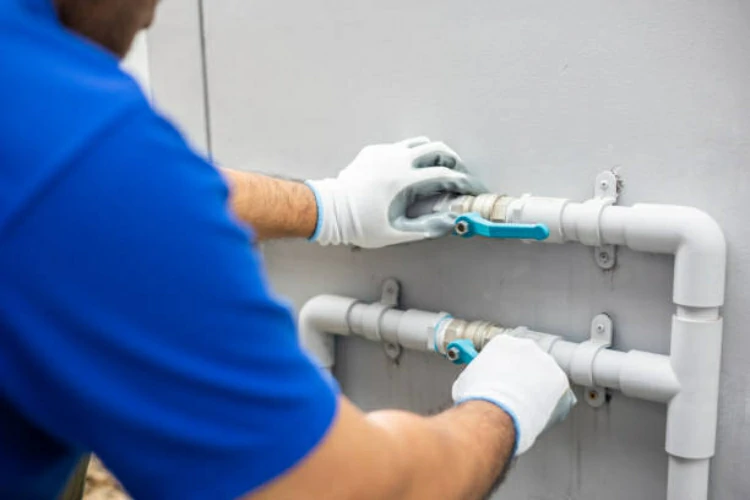Understanding CPVC Tubes
Introduction to CPVC Tubes
CPVC (Chlorinated Polyvinyl Chloride) tubes are renowned for their exceptional chemical resistance, durability, and high-temperature tolerance, making them a preferred choice in various industries. These tubes find extensive applications in transporting hot and cold water, corrosive fluids, and chemicals, owing to their unique properties and reliability.
Key Features of CPVC Tubes
Resistencia química:
CPVC tubes demonstrate excellent resistance to a wide range of chemicals, acids, bases, and solvents, rendering them ideal for handling corrosive fluids in diverse settings. Their robust chemical resistance makes them suitable for applications in industrial, commercial, and residential sectors.
Temperature Tolerance:
CPVC tubes can withstand high temperatures up to 200°F (93°C) and higher, making them ideal for hot water distribution systems, chemical processing, and industrial applications.
Durabilidad:
CPVC tubes are highly durable and resistant to cracking, splitting, and chemical degradation, ensuring long-term performance and reliability in harsh environments.
Ease of Installation:
CPVC tubes are lightweight and easy to install using solvent cement or mechanical fittings, reducing labor costs and installation time compared to metal piping systems.
Comparative Analysis of CPVC Tubes with Other Piping Materials
CPVC vs. PVC
Resistencia química:
While both CPVC and PVC offer good chemical resistance, CPVC surpasses PVC in its resistance to corrosive substances such as acids, bases, and salts. This superior resistance makes CPVC more suitable for handling aggressive fluids in various applications.
Temperature Tolerance:
CPVC has a higher temperature tolerance compared to PVC, allowing it to withstand hot water and steam applications without softening or deforming.
Cost:
CPVC tends to be slightly more expensive than PVC due to its additional processing steps and higher performance characteristics.
CPVC vs. PPR
Temperature Tolerance:
CPVC boasts a higher temperature tolerance than PPR, making it ideal for applications involving hot water distribution systems and industrial processes requiring elevated temperatures. This superior heat resistance ensures the durability and reliability of CPVC pipes in high-temperature environments.
Resistencia química:
Both CPVC and PPR offer excellent chemical resistance, but CPVC may be more suitable for handling highly corrosive fluids due to its chlorinated structure.
Installation:
CPVC tubes are typically easier to install than PPR pipes due to their compatibility with solvent cement and simple joining techniques.
CPVC vs. Copper
Corrosion Resistance:
CPVC tubes offer superior corrosion resistance compared to copper pipes, especially in aggressive water conditions with high acidity or alkalinity.
Cost:
CPVC is generally more cost-effective than copper pipes, making it a preferred choice for budget-conscious projects.
Installation:
CPVC tubes are easier to install than copper pipes, requiring fewer specialized tools and skills, which can result in lower installation costs and faster project completion.
Conclusion: Choosing the Right Piping Material
When selecting piping materials for your project, it’s essential to consider factors such as chemical resistance, temperature tolerance, durability, and installation requirements. While CPVC tubes offer excellent chemical resistance, high-temperature tolerance, and ease of installation, each material has its advantages and limitations. This comprehensive assessment ensures optimal performance, longevity, and efficiency of the overall system, minimizing risks and enhancing operational reliability.
IFAN es un fabricante chino de tuberías, accesorios y válvulas de plástico con 30 años de experiencia. Si está interesado en IFAN accesorios de cobre, válvulas de cobre, tuberías y accesorios de plástico, póngase en contacto con nosotros. IFAN le ofrece una variedad de tuberías estándar para satisfacer sus necesidades específicas. Haga clic a continuación para obtener más información sobre la amplia gama de productos de válvulas y productos relacionados con sistemas de tuberías asequibles y rentables de IFAN.
Responderemos a su correo electrónico o fax en 24 horas.
Puede llamarnos en cualquier momento si tiene alguna duda sobre nuestra producción.
Para más información, visite nuestra página web https://ifanpro.com/
Pls Mailto: [email protected]
Whatsapp: + 86 19857948982














Comentarios recientes